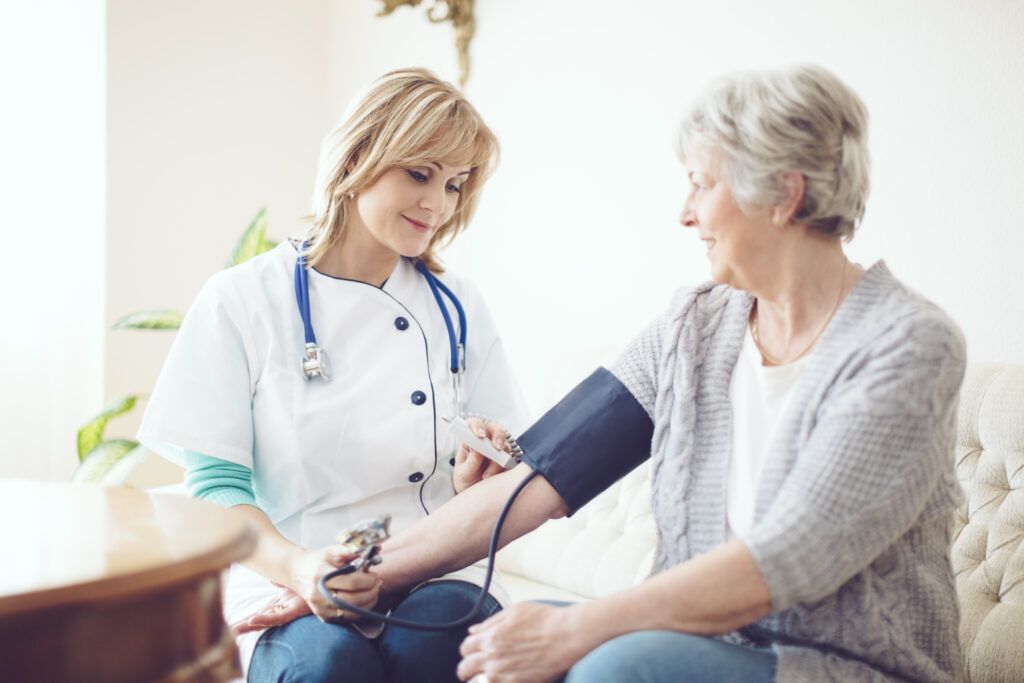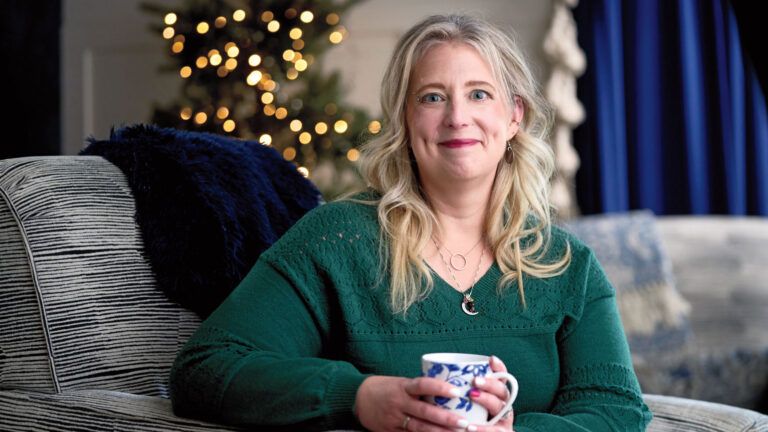May is National Blood Pressure Awareness month. Blood pressure is the pressure through which blood is pumped through your circulatory system – one of the most important functions in your body.
Elizabeth Kaback, M.D., a cardiologist at Scripps Health Center in California, spoke with Guideposts.org to help clear up some common misunderstandings about blood pressure. She offered her tips for recognizing the signs of high blood pressure, preventing it, and, if you’re suffering with high blood pressure, how you can manage it.
GUIDEPOSTS: How do we make sense of those blood pressure numbers?
DR. ELIZABETH KABACK: The upper number, the systolic number, is the number we get when the blood comes shooting out of the heart into the rest of the blood vessels it’s feeding into and the bottom number, is the relaxation part. How your vessels respond to a big push of blood out of the heart and how do they relax?
GUIDEPOSTS: What’s the ideal blood pressure?
EK: It depends on your age. The bottom number tends to be higher when you’re younger and you have high blood pressure and as you age, they both tend to get higher. Part of that is because the vascular system tends to get less elastic, but in general, if you are less than 40, your blood pressure should be less than 130/90. If you’re 50 or older, you should probably be less than 140/90.
GUIDEPOSTS: How would a person know if they had high blood pressure without a reading?
EK: Blood pressure’s referred to as the silent killer because people can walk around for years with high blood pressure and they only present with stroke or a heart attack. If you’re healthy and you’re going to your doctor and you find that your blood pressure is a little higher than it should be, you might want to do things to get that down.
If you’re someone who doesn’t go to the doctor though, you may find you go into the drugstore and you try one of those machines and you find out your blood pressure is very high. The numbers we get really worried about for a stroke and heart attack are upwards of 180/100.
But over the years, what gets people into trouble is that they don’t run quite that high but they run greater than 140/90 for most of the time and they get into a situation that spikes their blood pressure over 180/100.
GUIDEPOSTS: So there are no symptoms?
EK: People can have no symptoms at all or they can have chest discomfort or present with symptoms of a stroke. There’s a wide range of presentations but in between that, a lot of people wake up with morning headaches. Naturally, your blood pressure is supposed to drop when you sleep but when you develop high blood pressure, it tends to be higher at night when you’re sleeping than when you’re up and walking around. Some people will wake up with morning headaches or they’ll find they get short of breath easier when they’re exercising because it becomes harder for the heart to pump against a higher pressure and then the heart can’t fill because it’s trying to squeeze against a higher pressure head. It may be that you get flushed or shaky. People that have secondary hypertension, that’s when you have hormones that cause hypertension, will have a feeling of their heart racing and it’ll make the person get hot and flushed.
GUIDEPOSTS: What can people do to prevent high blood pressure?
EK: Cut out high salt content food and highly processed foods: white sugar, white salt, white bread, things that have high salt contents. Americans’ tastes and palates are used to having very salty diets which is why Americans tend to eat beyond 3 grams of salt a day. Really, the recommendation is to eat no more than 1.5 grams.
Some people are more salt sensitive than others but that’s certainly a way to help your body naturally. Exercising regularly, maintaining a normal body weight, eating fresh fruits and vegetables, mainly more veggies than fruits because they have antioxidants and anti inflammatories that help to reset the scale.
GUIDEPOSTS: What about exercise? How does that affect your numbers?
EK: The more you move the better. I personally don’t think 30 minutes is enough. I like to go by steps per day. Bottom line you should be taking at least 10,000 steps a day. That doesn’t mean you do it in an isolated workout period, it means in your day, from when you get out of bed in the morning to when you go to bed at night, the activity you partake in is covering that many steps throughout the day. Sitting is the new smoking. We’re attached to our computers and cell phones and we’re not moving as much as we should.
GUIDEPOSTS: One thing we always hear with blood pressure is it’s correlation to stress. What’s the relationship between blood pressure and stress?
EK: When you’re in a stressful situation you produce hormones that spike your blood pressure. We have this flight or fight mechanism. In the old days, you were facing a saber tooth tiger, your adrenaline would spike and you’d run away from the tiger and that adrenaline would get burned off because you ran and your hormones would rebalance. Today, we have chronic stress because we’re bombarded by things in our life that cause it – the TV’s on, your cell phone rings, you’re trying to make it to a meeting, and you’re driving the kids all over the place. We have to understand that part of your well being is monitoring and managing your stress.
GUIDEPOSTS: So many people have a fear of going to the doctor. Many don’t get regular checkups. Why is it important to be on top of your health?
EK: The best thing is to know that the doctor is there to help you and you’re being proactive. It’s better to know than not know because then you can take action. If you take action, you’re empowering yourself and if you’re empowering yourself, it makes it less scary, going to the doctor.





